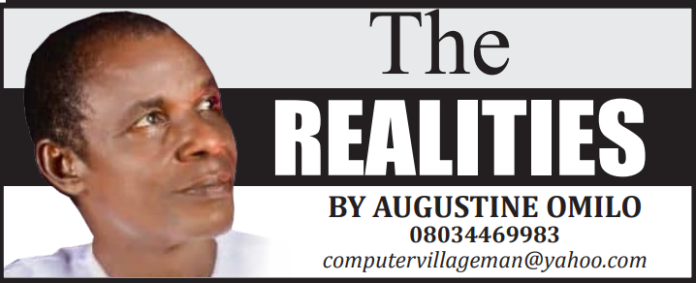NIGERIANS are still basking in the euphoria of experiencing 25 years of unbroken democracy. It is indeed worth celebrating, given the fact that the nation has not had it better in the 63 years of her independence. The first republic only lasted for about six years (1960 -1966). It was truncated by the Major Kaduna Nzeogu-led military coup of January, 1966. Another opportunity came in 1979 when Shehu Shagari won the year’s presidential election and became the first executive president of the country. He was overthrown again in 1983 by the military junta who told Nigerians that the politicians had not learnt their lessons.
Another failed attempt was made in 1992/1993 when Chief M. K. O Abiola’s victory was annulled by the military leadership of the nation led by General Ibrahim Badamosi Babangida, the then military president who was later forced to “step aside” by Nigerians. The way was thus paved for another era of democratic governance by subsequent events that formally ushered in this present dispensation on the 29th of May, 1999.
However, despite the better stability in civilian leadership of the most populous black man’s nation on earth, the few elected representatives of the people have continued to play down on the reasons for the people’s choice of democracy as against military dictatorship as a better way of governance. The beauty of government through elections lies in the provision for people’s participation in the decision making processes. But it is no longer news to see government policies springing up without the consent of the electorates.These are big issues looking small before the leaders. And yet they portend danger for the country.
On the 29thof May, 2023, Bola Ahmed Tinubu was sworn-in as the president of Nigeria. Without consultations and adequate arrangements for his policy overseeing officers, he announced the removal of fuel subsidy. The “bold” step was applauded by many of his admirers, especially the All Progressives Congress followers. But that seemingly ‘small’ statement on Tinubu’s first day in office has since introduced so many economic anomalies that are now so big that Nigerians are wondering how the nation can survive them.
When vote buying was introduced into the country’s political system in Edo state in 2016 by the principal political actors in the area, it looked like a tool that would be used and dumped after winning the elections. Unfortunately, the reverse is the case as vote selling and buying presently play great roles in our electoral system. The country is still battling with the irregularities heaped on the 2023 general elections by this abnormal method of choosing leaders.
As Nigerians continued to bear these characteristics of democracy in the country, some elected political office holders have gone ahead to introduce a system whereby they choose what to do on behalf of their constituents with the mandate they received from the people. Consultation as a word appears to have been deleted from their dictionaries. Prince Ned Nwoko, one of Nigeria’s most internationally accomplished legal practitioners is presently the elected senator representing the people of Delta North in the Senate. He received the mandate from the people with the support of astute political actors like Senator Dr. Arthur Ifeanyi Okowa, Hon. Pascal Adigwe and many traditional rulers in the district. He has introduced a bill at the red chambers. It seeks to create Anioma state “for” the South East geopolitical zone of Nigeria instead of creating one “from” Delta state as the agitation has been since the creation of the old Midwestern region of the country.
Nwoko’s argument is that if Anioma state is created, it will increase the number of politically elected leaders such as governors, senators, house of representatives members and the rest. He failed to address the big issues likely to arise from his bill if finally successful.
To begin with, it is generally agreed that the Igbos of the south east are marginalized in terms of the number of states that make up the area. It is also a known fact that many folks from Delta north (formerly part of Mid western Nigeria) do not accept to be addressed as Igbos. Now, the question is; “if Anioma state is created “for” south east as proposed by Prince Nwoko and at some point it’s governor refuses to cooperate with his other colleagues in the south east as an Igbo man, will the created state still be seen to have helped to resolve the marginalisation of the Igbos in the political equation of the country? “In other words, will this not end up as a smart move that Igbos will be used to achieve but dumped afterwards?
But beyond the merits and the demerits of the distinguished senator’s bill, courtesy demands that he should have consulted widely before his actions. There is hardly anyone who does not want the state to be created. But the approach has since polarized the peaceful co-existence hitherto enjoyed by the constituents. Loudable as the current efforts of Ned is towards consultation of the traditional rulers of the area, it can only be likened to putting the cat before the horse.
The biggest implication of actions in democracy without the endorsement of the people is that it portrays their sponsors as arrogant. They can also bring about resentment from the people. A word, they say, is enough for the wise.


